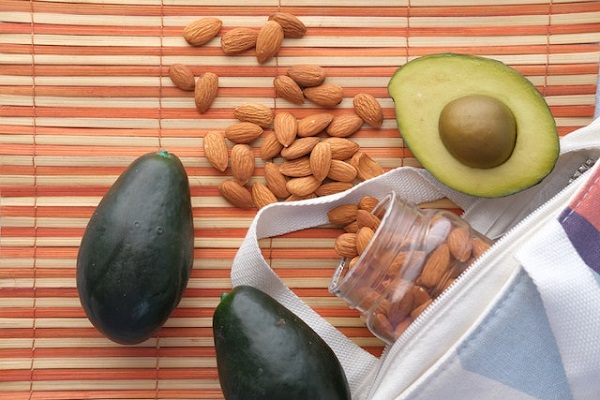Words: Team THINKWELLNESS360
Avocados and almonds are not just healthy treats; they are also delightful options to bringing home the natural healing nutraceutical ‘punch’ to optimal wellness.
Avocados, originally a ‘native’ of Central Mexico, are sometimes known as ‘alligator pear,’ because of their shape and leather-like appearance. Their name is actually derived from the Aztec word, ahuacatl.
Research suggests that avocados are rich in 20 essential nutrients, including monounsaturated fat that is effortlessly burned for energy. Research indicates, no less, that avocados boost healthy fat and calorie intake without increasing your protein, or carbohydrate, intake. Besides, they are rich in potassium — they also help balance your potassium to sodium ratio.
Avocados are a good source of fibre, vitamins and folates too. A half-portion of avocado, for instance, provides 150 calories, 15gm of heart-healthy unsaturated fat and just 2gm of saturated fat, besides one-third daily value of vitamin C, and more than half of your daily requirement of vitamin K.
- Avocados are packed with anti-inflammatory agents — or, pain-relieving effects
- They optimise cholesterol levels and promote good heart health
- The compounds found in the fruit are suggested to inhibit and demolish oral cancer cells
- Studies suggest that the antioxidant fruit may help protect against liver damage.
Studies suggest that avocados can help improve lipid profiles in healthy individuals and people with ‘non-optimised’ ‘good’ [HDL]] cholesterol levels. A study found that there was a 16 per cent decrease in serum cholesterol levels in healthy subjects, following a one-week long dietary intake of avocados. As far as subjects having elevated cholesterol levels were concerned, a typical daily avocado diet, as the study showed, resulted in a 17 per cent decrease of serum cholesterol, a 22 per cent decrease of ‘bad’ [LDL] cholesterol, and triglycerides, along with an 11 per cent increase of ‘good’ HDL cholesterol levels.
Avocado is also rich in lutein, a phytonutrient. Lutein combats oxidative stress, cataracts and macular degeneration — the result of aging. Adding avocado to one’s diet plan is imperative for good eye health. New research suggests that high amounts of folates in avocado could do a world of good for expectant mothers. This is because avocado can help prevent birth defects, such as spina bifida and neural tube defect, in the new-born.
Almonds
Almonds are also believed to have originated in ancient West Asia and North Africa. The Romans, for instance, referred to almonds as the ‘Greek nut,’ primarily because they were first cultivated in ancient Greece.
Almonds are not nuts technically; they are seeds of the fruit of the almond tree. They are also, perhaps, the most nutritious of all nuts.
- Almonds are good for the brain and intellectual function — they are considered as a healthy, essential food source for growing children
- Almonds are packed with protective nutrients, calcium and magnesium, for strong bones, as also vitamin E and other phytonutrients to protect against heart disease and cancer
- Almonds are called the ‘phytochemical powerhouse.’ Studies evidence, that, if one consumes five almonds, on a daily basis, their heart attack risk is reduced by 50 per cent
- A clinical study has shown that almonds have a favourable effect on blood cholesterol levels; no one involved in the study experienced any weight gain.
Almonds contain resveratrol, a natural anti-inflammatory agent, which is evidenced to lower the risk of heart disease. The fat in almonds is ‘good,’ unsaturated fat — it is free of cholesterol. This are suggested to regulate blood pressure. Almonds also help reduce a ‘spurt’ in sugar and insulin levels after food. This offers a natural defence against diabetes, more so in the management of the disorder.
When you bite into the nut, there is reason enough why you ‘go nuts’ with almonds — as also avocados.

